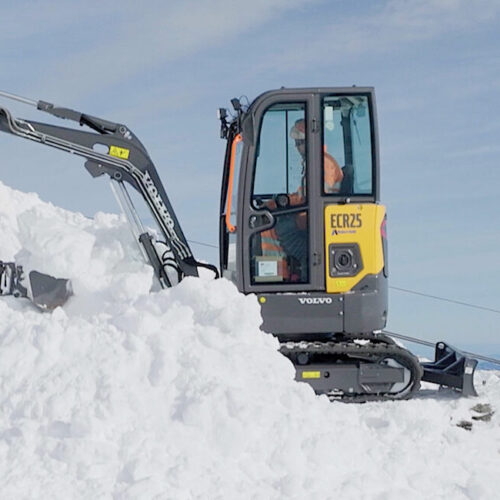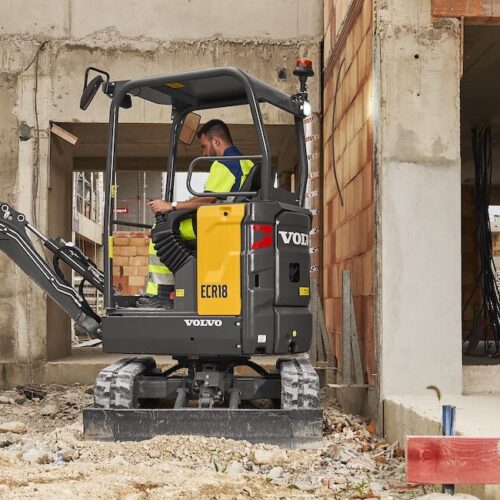Operator Tips: How Improving Your Company’s Operating Costs Impacts You
If you’re an operator, you may think your day-to-day performance is what really matters when it comes to your job — how many yards of dirt you moved or how many […]

If you’re an operator, you may think your day-to-day performance is what really matters when it comes to your job — how many yards of dirt you moved or how many loads you carried. But most owners and fleet managers love to see an operator who’s not only productive, but also works hard to be efficient and takes good care of the machines.
When you work efficiently and reduce wear and tear, it lowers your company’s operating costs. Operating costs include things like fuel consumption, wear parts, preventive maintenance and repairs. Think about the money your company spends on fuel, replacing worn tires, repairing undercarriages and so on. Month after month, these costs add up and cut out of your company’s profitability.
But there are things you can do as an operator to cut down on these types of expenses. In this post, I’ve provided some tips on lowering operating costs, plus I’ve laid out a few reasons why this should be a primary focus in your daily work. If you’re reading this and you’re not an operator, sharing these tips with your crew could be a way to get them thinking about your company’s bottom line.
Learn how to increase your productivity today with our uptime efficiency services and productivity services.
Table of Contents
- Tips For Construction Operator Efficiency
- Benefits Of Productivity Improvements
- Learn How To Improve Operator Efficiency From Volvo
TIPS FOR CONSTRUCTION OPERATOR EFFICIENCY
Let’s start with four quick ways you can help lower your company’s operating costs to improve profits:
- Keep up with basic maintenance of your machine. For example, a low-cost gasket could be a quick fix to repair an engine oil leak. But if you don’t make it a priority, it could cost your company thousands of dollars for a new engine, which will depend on the machine and model. If you notice a leak, you should always say something to have it fixed before it becomes a bigger issue. Seasonal maintenance is also critical — read our blog about summer maintenance checks to learn more.
- Perform prestart checks every morning. Catching issues when they’re small saves your company lot of money in the long run by preventing unnecessary breakdowns. Greasing machines daily or at the appropriate intervals laid out in the operator’s manual go a long way. A $2 tube of grease can save thousands of dollars in pin and bushing repairs alone. We’ve provided an articulated hauler prestart checklist and excavator prestart checklist if you want some tips on what to look for.
- Limit idle time. If you won’t be operating your machine for a while, don’t let it sit there and idle — shut it down. This can save your company a lot of money in fuel costs over time. We’ve seen scenarios where even a 10% reduction in idle time over 12 months equates to over $8,000 in diesel savings and over $6,000 saved in preventive maintenance. Up this scenario it to a 25% reduction in idle time, and the numbers are over $43,000 and $32,000, respectively. That’s roughly $75,000 you could save each year simply by reducing idle times by a quarter.
Here’s a quick tip to help you limit idle time: Check to see if your machine is equipped with an optional cab heat timer. At Volvo, this feature is optional for wheel loaders and haulers. It recirculates the coolant to keep the cab warm in the winter. You can also keep the cab cooler in the summertime by turning on the automatic fan on the A/C unit in the back of the cab (it blows cool air over the top of the condenser). In any event, idling isn’t good for your diesel engine. What’s more, you’re not only burning fuel, but the service intervals, the warranty on the machine, etc. The bottom line is excessive idling has a negative impact on your company’s profitability.
If you have them available, you can always turn to in-cab assist programs designed to help you become a better operator while you’re working. Our Volvo Load Assist program, for example, features an app called Operator Coaching that helps you understand when and how to use the different smart functions of your wheel loader to achieve optimal results onsite. You can also set targets and objectives to continually develop and improve your operating practices to get the most out of yourself and your machine. Programs like these improve your accuracy — and the goal is to turn that accuracy into higher profits.
BENEFITS OF PRODUCTIVITY IMPROVEMENTS
You should know that higher profits don’t just benefit the owners — you benefit, too. Here are a few reasons why you should make lowering the operating costs of your company a big priority:
- I’ve heard of several companies that have operator competitions to see who can work the most efficiently with their machine, while also being the most productive. The objective here is to keep their operating costs as low as possible. The operator who wins each week receives a bonus or award of some sort. Some companies are willing to pay you back if you can help grow the bottom line. Talk to your owner of fleet manager and see if an efficiency/productivity challenge is right for your operation.
- Show pride in the equipment you run. A lot of companies reward their operators when they take care of their machine. If you make a machine last, you’re more likely to be first on the list to get a new one when machine replacements come up. An owner or fleet manager isn’t likely to give a newer machine to an operator who’s been abusing their machine (even inadvertently). If you think you could benefit from training, always ask.
- If you help keep your company’s profitability up and improve cash flow, your company will have more opportunity to bid jobs faster and move on to bigger jobs. Staying productive and efficient keeps work coming in without excessive lag times. Getting jobs done efficiently also helps your company build a more solid reputation in your area.
- Be a dependable employee. Any year can bring uncertainty (as we’ve all learned in 2020). If there is an unexpected slow down, you want to be known as the operator who maintains his machine. Showing pride in your equipment shows you care about your company — and employees who care are more valuable.
- Attitude is everything. I know some really good operators, but with poor attitudes — and a poor attitude usually equates to an operator who doesn’t take good care of his machine. He can operate it, but he doesn’t take extra steps to care for his machine as well as other operators. While they may not be as proficient or productive, a positive attitude shows that you’re willing to do whatever it takes to become a better operator. Operators with positive, go-get-it attitudes tend to drive profitability much more.
At Volvo, we’re big believers in ongoing operator training, even if you’re a seasoned operator. You can save your company money by becoming more familiar with your machine and all the emerging technologies. Imagine how much easier and more efficient your daily job could be if you dig down and really understand what every switch and button does in the cab. And more importantly, better training helps prevent injuries and accidents, which not only costs your employer, but you as well.
Categories: Construction Equipment, Corporate Information, Insights


